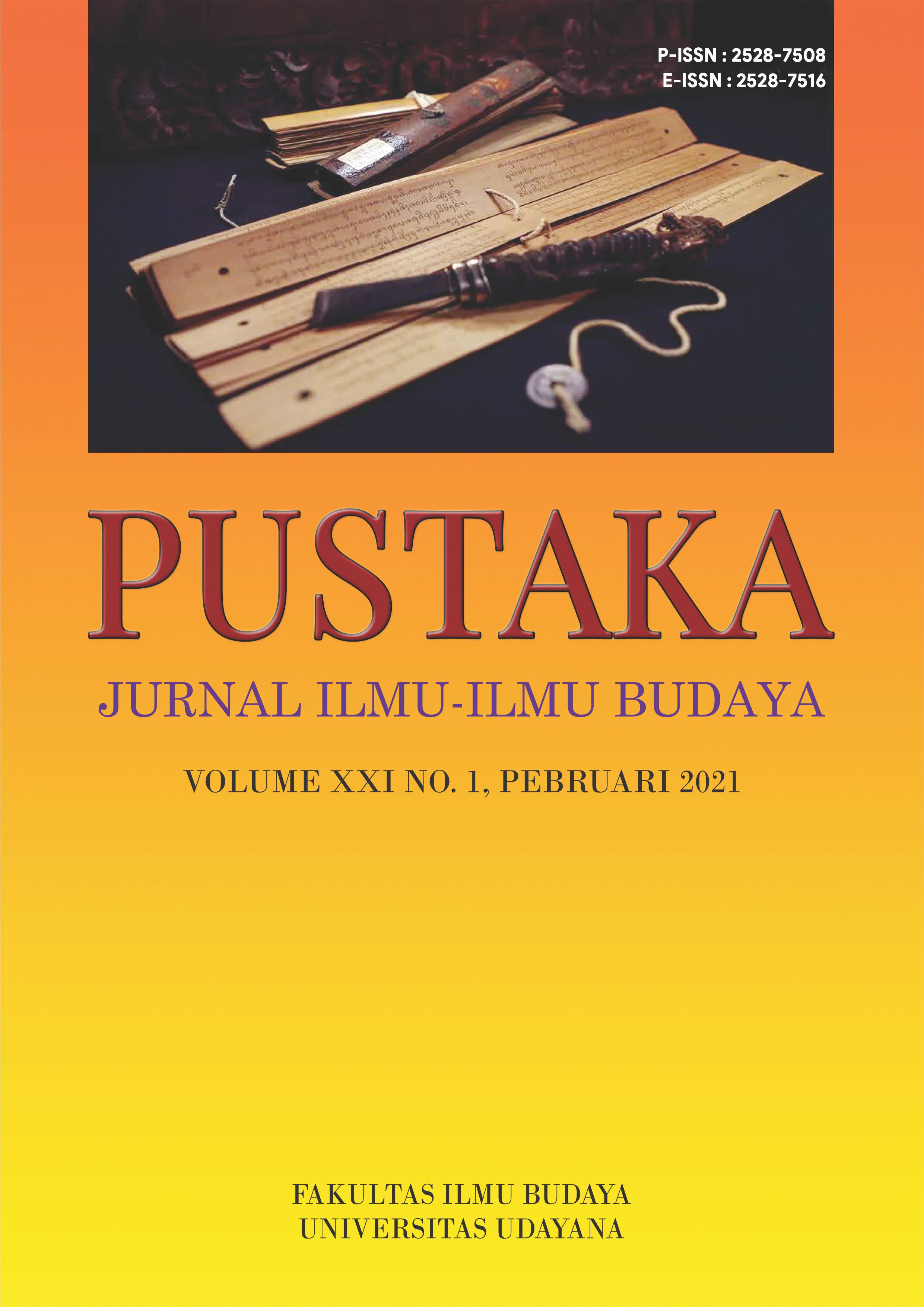Dekonstruksi Bomoh Dalam Ritual Bedekeh Suku Akit Di Rupat Bengkalis Provinsi Riau
Abstract
Bedekeh is medical traditional treatment that is from the ancient treatment of ancestor that has been done by Akit People when they need treatment such as seek and seen the desease or illness from the body of someone. This ritual is contained mystics which they believe if there is relation with the curing that is helped by the spirit of ancestor Akit that is based of Akit people’s faith. Both Batin and Bomoh have a big role of Akit Tribes life cycles. The role of Batin in Akit Tribe is important because they not only keep the tradition culture of Akit exist, but also lead the Bedekeh ritual (as Bomoh Besar). Nowadays, exsistent of Batin is not used by or important because Batin himself has been replaced by the Village Head of Hutan Panjang (Kepala Desa) that is not nesessary from Akit People. When there was Undang-Undang Desa (Village Laws), Batin had two roles, Kepala Desa (Village Head) and the leader of Bedekeh Ritual. In Akit People, Batin and Bomoh have certain social roles and cultural system of Akit. The Profession of Bomoh politically authoritative discourse of power. The Position of Bomoh attract the variety of interests as the legitimacy of power. That posistion is used to gain the position, respect, and power. Discourse of power or knowledge is Foucault’s Theory, about correlation between Discourse, power, and knowledge to become the aspect in power of Batin and Bomoh for Bedekeh ritual for Akit People.
Downloads
References
Fakih, Mansour. 1997. Analisis Gender dan Transformasi Sosial (Cetakan Kedua). Yogyakarta: Pustaka Pelajar.
____________. 2003. Runtuhnya Teori Pembangunan dan Globalisasi. Yogyakarta: INSIST-Press.
Foster. G.M. & B.G. Anderson. Antropologi Kesehatan. Jakarta :UI Press 1986.
Foucault, Michel. 2002. Pengetahuan dan Metode Karya-karya Penting Foucault. Yogyakarta: Jalasutra.
_____________. 1997. Dicipline and Punish: The Birth of the Prison (terjemahan Alan Sheridan). New York: Vintage Books.
_______________. 2002. Power/knowledge Wacana Kuasa/Pengetahuan (penerjemah Yudi Santosa). Yogyakarta: Benteng Budaya.
Giddens, Anthony. 2003. Masyarakat Post Tradisional. Cetakan Pertama. Diterjemahkan oleh : Ali Noer Zaman. Yogyakarta: IrCisod.
Haryatmoko. 2002. “Kekuasaan Melahirkan Anti-Kekuasaan, Menelanjangi Mekanisme dan Teknik Kekuasaan Bersama Michael Foucault”. BASIS edisi Konfrontasi Foucault dan Marx, No. 01-02, Tahun ke-51, Januari-Februari.
Hoed, Benny H. 2008. “Komunikasi Lisan sebagai Dasar Tradisi Lisan”. Dalam: Pudentia MPPS. (ed). Metodologi Kajian Tradisi Lisan. Jakarta: Yayasan Obor dan ATL. Hal: 183-192.
Hussein, Ismail. 1978. The Study of Traditional Malay Literature with Selected Bibliography. Kuala Lumpur : Dewan Bahasa dan Pustaka.
Lévi-Straus. 1966. The Savage Mind. London: Weidenfold Nicolson.
Lubis, Akhyar Yusuf. 2006. Dekonstruksi Epistimologi Modern, dari Posmodermisme, Teori Kritis, Poskolonialisme Hingga Cultural Studies. Jakarta : Pustaka Indonesia Satu.
Pedoman Kajian Tradisi Lisan. 2012. Pengembangan Kajian Langkah, Kajian Tradisi Lisan sebagai Kekuatan Kultural. Jakarta: Dirjen Dikti.
Sarwono, Solita Wirawan. 1993. Sosiologi Kesehatan. Yogyakarta : Gadjah Mada University Press.
Suroyo. 2017. Ritual Bedekeh Suku Akit di Pulau Rupat Kabupaten Bengkalis Provinsi Riau Pada era Global. Disertasi. Universitas Udayana, Denpasar.










